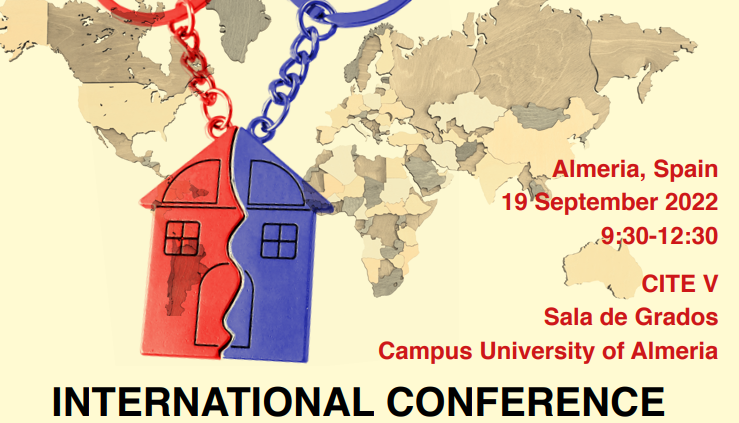Views
Bob Wessels, International Insolvency Law: Part II European Insolvency Law, 4th edition 2017, Wolters Kluwer
Written by Lukas Schmidt, Research Fellow at the Center for Transnational Commercial Dispute Resolution (TCDR) of the EBS Law School, Wiesbaden, Germany
With International Insolvency Law Part II having been published, Bob Wessels’ 10 volume series ‘Insolventierecht’ (Insolvency Law) is now completed in its 4th edition. The publication comprehensively deals with the European Insolvency Regulation Recast as entered into force on 26 June 2017, while International Insolvency Law: Part I Global Perspectives on Cross-Border Insolvency Law, already published at the end of 2015, covers the core concepts of Cross-Border Insolvency Law, other regional frameworks than the EIR and relevant instruments of soft law. Read more
Deference to Foreign Sovereign Submissions
As previously reported here, the United States Court of Appeals for the Second Circuit issued a decision in 2016 reversing a $147.8 million price-fixing judgment against two Chinese manufacturers of Vitamin C. The plaintiffs alleged that the Chinese manufacturers engaged in price fixing and supply manipulation in violation of U.S. antitrust laws. In its first ever appearance as an amicus before a U.S. court, the Chinese government filed a formal statement asserting that Chinese law required the Chinese manufacturers to set prices and reduce the quantities of Vitamin C sold abroad. Relying on this statement, the Second Circuit held that because the Chinese manufacturers could not comply with both Chinese law and the U.S. antitrust laws, principles of international comity compelled dismissal of the case.
This case raises a host of interesting questions. First, did the Second Circuit reach the right result? Second, is this a comity case or a foreign sovereign compulsion case? Third, what level of deference is due to a foreign sovereign that appears in private litigation to explain their country’s laws? Fourth, should U.S. judges defer to such an explanation?
In June 2017, the United States Supreme Court called for the views of the United States. This past Tuesday, the Solicitor General (SG) filed this brief in response to the Court’s order.
In this submission, the SG explains that the Court should grant review of the Second Circuit’s decision in order to review the court of appeals’ holding that the Chinese government’s submission conclusively established the content of Chinese law. According to the SG, “a foreign government’s characterization of its own law is entitled to substantial weight, but it is not conclusive.” The SG argues that the case warrants the Court’s review because “[t]he degree of deference that a court owes to a foreign government’s characterization of its own law is an important and recurring question, and foreign sovereigns considering making their views known to federal courts should understand the standards that will be applied to their submissions.”
Should the Court grant review, the question of what standard should be applied to foreign sovereign submissions will be key. This is a question I have explored here.
It will be interesting to see whether the Court accepts the SG’s request to review the Second Circuit’s decision.
Jurisdiction, Conflict of Laws and Data Protection in Cyberspace
Report on the Conference held in Luxembourg on 12 October 2017, by Martina Mantovani, Research Fellow MPI Luxembourg
On 12 October 2017, the Brussels Privacy Hub (BPH) at the Vrije Universiteit Brussel and the Department of European and Comparative Procedural Law of the Max Planck Institute Luxembourg held a joint conference entitled “Jurisdiction, Conflicts of Law and Data Protection in Cyberspace”. The conference, which was attended by nearly 100 people, included presentations by academics from around the world, as well as from Advocate General Henrik Saugmandsgaard Øe of the Court of Justice of the European Union. The entire conference was filmed and is available for viewing on the YouTube Channel of the Max Planck Institute Luxembourg (first and second parts) Read more
News
Today the Russian Federation ceases to be a High Contracting Party to the European Convention on Human Rights
Today (16 September 2022) the Russian Federation has ceased to be a High Contracting Party to the European Convention on Human Rights (ECHR). This means, inter alia, that applications against the Russian Federation will no longer be entertained by the European Court of Human Rights (ECtHR).
However, the Resolution of the ECtHR of 22 March 2022 clarified that “The Court remains competent to deal with applications directed against the Russian Federation in relation to acts or omissions capable of constituting a violation of the Convention provided that they occurred until 16 September 2022.” To view the full resolution, click here. The news item is available here.
The Russian Federation had ceased to be a member of the Council of Europe on 16 March 2022. See here.
We have previously reported on the increasing interaction between the ECHR and Private International Law. This is particularly so in surrogacy and international child abduction cases. See for example a judgment regarding international child abduction rendered by the ECtHR earlier this year, where no violation of article 8 of the ECHR was found against Russia: Case of P.D. v. Russia (Application no. 30560/19). But see Thompson v. Russia (Application no. 36048/17) where a violation of article 8 of the ECHR was indeed found.
For more information about this interaction, click here.
Undoubtedly, today is a sad day for human rights law.
Conference “Couple’s Property with Cross-Border Implications”
Under the auspices of the EU Justice project E-training on EU Family Property Regimes, shortly known as EU-FamPro, the project partners organise a conference COUPLES’ PROPERTY WITH CROSS-BORDER IMPLICATIONS: Uniting Academic Discussions and Practical Concerns, followed by the seminar on Practical Challenges in the Application of the Twin Regulations. The conference and the seminar are due to take place on 19 September 2022 at the University of Almeria, Spain.
The programme of the event is now available here.
The event will be held in hybrid format. You may join the event via Zoom by clicking on this link.
RIDOC 2022: Call for Applications
Some of our readers will be interested to know that University of Rijeka, Faculty of Law announced this year’s call for applications to the Rijeka Doctoral Conference: RIDOC 2022. Receiving applications on any legal or related topic of doctoral research, the conference traditionally hosts at least one session in private international law. Applications should be sent to ridoc@pravri.hr by 5 October. The conference is scheduled for 9 December 2022 in the hybrid format, but hopefully many of the participants will be able to attend onsite.




